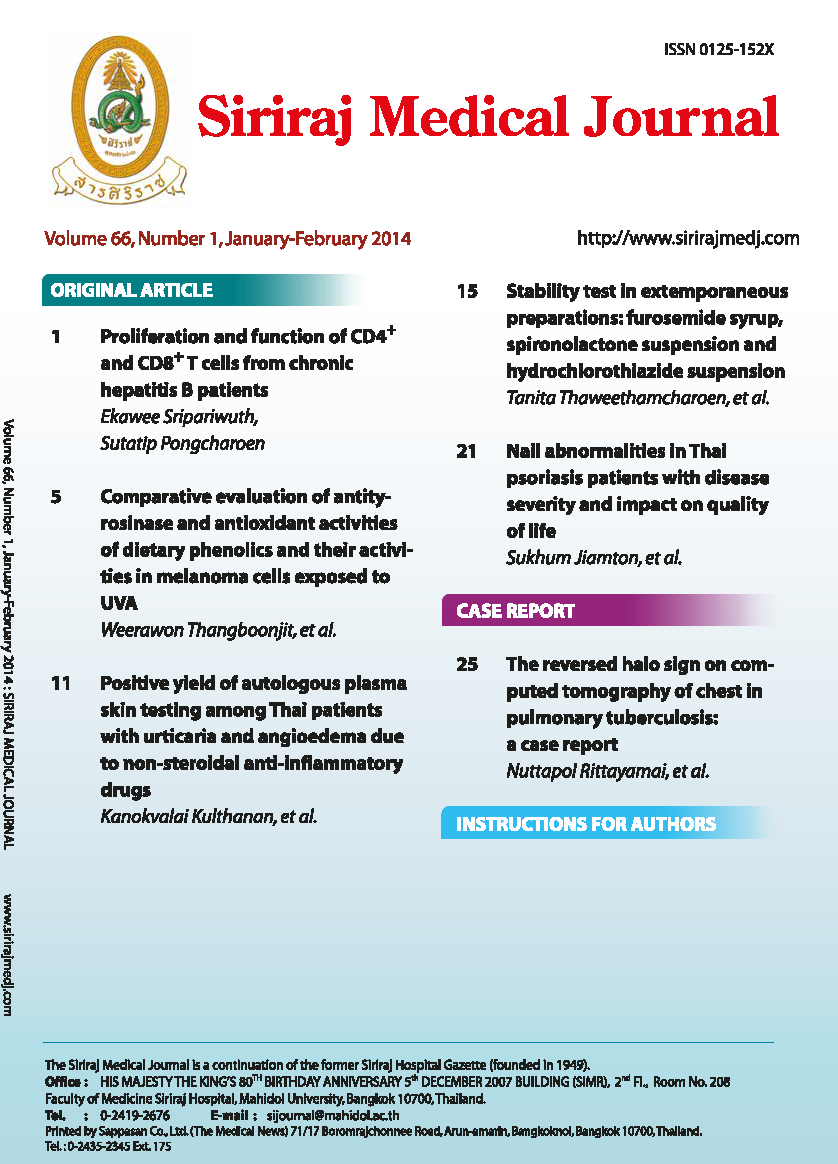Proliferation and Function of CD4+ and T Cells from Chronic Hepatitis B Patients
Abstract
Objective: Chronic hepatitis B virus infection (CHB) is involved in a deviated immune response to clear the virus. The disease process is caused by CD8+ T cell response. The mechanisms underlying different clinical manifestations of CHB are not clearly known. The present study investigated CD4+ and CD8+ T cell responses to hepatitis B virus (HBV) infection, in terms of cell proliferation and CD69, IL-4, IFN-γ, perforin and granzyme B expression.
Methods: A HBV peptide, FLLTRILTI and ionomycin/phorbol myrister acetate and phytohemagglutinin were used to stimulate peripheral blood mononuclear cells (PBMC) from patients with chronic HBV infection. The expression of CD69, IL-4, IFN-γ, perforin and granzyme B as well as cell proliferation was assessed.
Results: All subjects had similar CD69 expression and cell proliferation. However, the number of IL-4+ CD4 T cells increased in hepatitis B e-antigen (HBeAg)-positive CHB patients with increased alanine aminotransferase (ALT), HBV carriers, and HBeAg-positive CHB patients with normal ALT. IFN-γ+ CD4 T cells increased in HBeAg-positive and -negative CHB patients with increased ALT and also in HBV carriers. However, granzyme B-positive CD8+ T cells decreased in HBeAg-negative and -positive CHB patients with normal ALT.
Conclusion: The present study demonstrated that the different CD4 and CD8 T cell responses may underlie the hepatitis outcomes of CHB.
Keywords: CD4 T cell, CD8 T cell, chronic HBV infection, granzyme B, perforin
Siriraj Med J 2014;66:1-4
Downloads
Published
How to Cite
Issue
Section
License
Authors who publish with this journal agree to the following conditions:
Copyright Transfer
In submitting a manuscript, the authors acknowledge that the work will become the copyrighted property of Siriraj Medical Journal upon publication.
License
Articles are licensed under a Creative Commons Attribution-NonCommercial-NoDerivatives 4.0 International License (CC BY-NC-ND 4.0). This license allows for the sharing of the work for non-commercial purposes with proper attribution to the authors and the journal. However, it does not permit modifications or the creation of derivative works.
Sharing and Access
Authors are encouraged to share their article on their personal or institutional websites and through other non-commercial platforms. Doing so can increase readership and citations.










